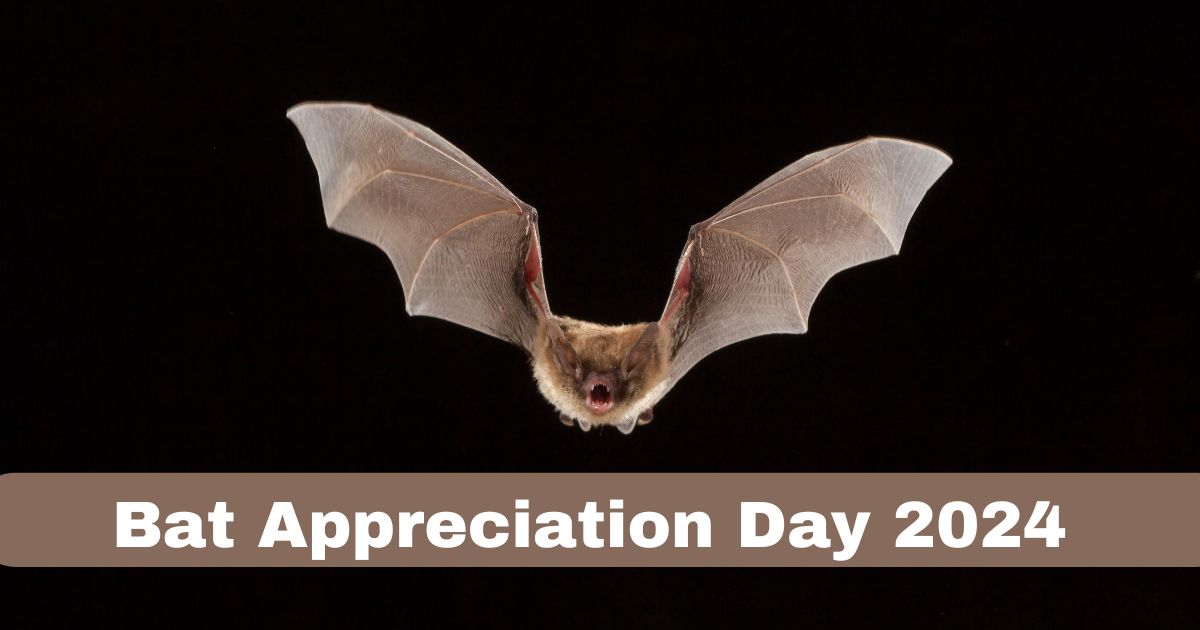Introduction to Bat Appreciation Day
Bat Appreciation Day is an annual event celebrated worldwide to raise awareness about the importance of bats in our ecosystem and to promote their conservation. This special day is observed on various dates, depending on the region, with the most common date being August 19th.
In 2024, Bat Appreciation Day will be celebrated on August 19th, providing an excellent opportunity to learn about these fascinating creatures and the crucial role they play in maintaining the delicate balance of our natural world.
Read More: Digital News Planet
The Significance of Bats in Our Ecosystem
Bats are often misunderstood and unfairly maligned, but they are in fact essential components of healthy ecosystems. These winged mammals play a vital role in pollination, seed dispersal, and insect control, making them true unsung heroes of the natural world.
Pollination
Many species of bats are responsible for the pollination of a wide variety of plants, including important food crops and rare, endangered plant species. Bats are particularly adept at pollinating plants that bloom at night, such as agave, durian, and banana plants, which are often overlooked by daytime pollinators like bees and butterflies.
Without the pollination services provided by bats, numerous plant species would struggle to reproduce, leading to a decline in biodiversity and reduced food security for human populations that rely on these plants.
Seed Dispersal
Bats also play a crucial role in seed dispersal, helping to regenerate and maintain the health of forests and other ecosystems. Many fruit-eating bat species consume the fruit of various plants and then disperse the seeds through their droppings, often over large distances. This process helps to establish new plant growth in areas that may have been cleared or damaged.
The importance of bat-mediated seed dispersal is particularly evident in tropical and subtropical regions, where bats are responsible for the regeneration of vast swaths of forest.
Insect Control
Insectivorous bat species are voracious predators of insects, consuming a wide variety of agricultural pests, disease-carrying mosquitoes, and other harmful insects. A single bat can eat hundreds of insects in a single night, providing natural and cost-effective pest control for farmers and communities.
By controlling insect populations, bats help to reduce the need for harmful pesticides, which can have detrimental effects on the environment and human health. This ecosystem service provided by bats is invaluable, particularly in areas where the use of pesticides is limited or restricted.
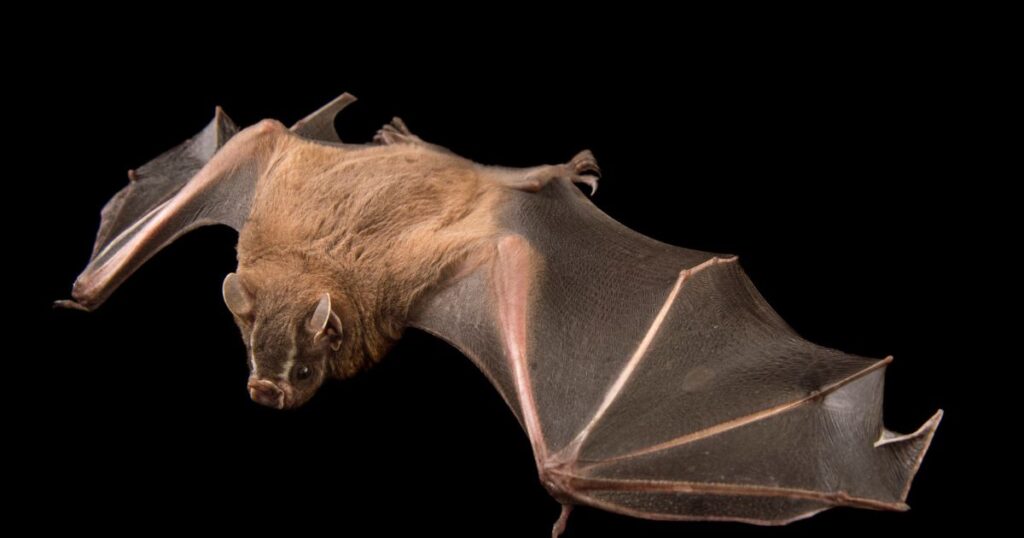
The Threats Facing Bat Populations
Despite their crucial ecological role, bat populations around the world are facing a multitude of threats that have led to significant declines in many species. Understanding and addressing these threats is essential for the long-term conservation of bats.
Habitat Loss and Fragmentation
One of the primary threats to bat populations is the loss and fragmentation of their natural habitats. As human development and land-use changes encroach on the areas where bats live and forage, these animals are forced to adapt or face local extinction.
Deforestation, urbanization, and agricultural expansion are particularly damaging to bat populations, as they destroy the essential roosting sites and foraging areas that bats rely on. This fragmentation of habitats can also isolate bat colonies, reducing genetic diversity and making them more vulnerable to environmental changes and other threats.
Disease Outbreaks
Bats have been the subject of increased scrutiny in recent years due to their potential role as reservoirs for zoonotic diseases, such as COVID-19. While the transmission of these diseases from bats to humans is a complex and poorly understood phenomenon, the perception of bats as disease vectors has led to increased persecution and culling of bat populations in some regions.
Furthermore, bats themselves are susceptible to diseases that can have devastating effects on their populations. For example, the fungal disease known as white-nose syndrome has decimated many bat colonies in North America, causing steep declines in several species.
Human-Caused Disturbances
Bats are particularly sensitive to human-caused disturbances, such as the noise and light pollution associated with urban and industrial development. These disturbances can disrupt the essential roosting and foraging behaviors of bats, leading to reduced reproductive success and overall population declines.
Additionally, bats are often killed or displaced by the construction of buildings, bridges, and other infrastructure projects that encroach on their natural habitats. This can have long-lasting consequences for local bat populations, as they are slow to reproduce and require specific roosting and feeding sites.
Climate Change
Climate change poses a significant threat to bat populations, as it can lead to changes in the availability and distribution of their food sources, as well as the suitability of their roosting sites. As temperatures rise and weather patterns become more unpredictable, bats may be forced to adapt or face local extinctions.
The effects of climate change can be particularly devastating for migratory bat species, which rely on specific environmental cues and resources to complete their long-distance movements. Disruptions to these migration patterns can have cascading effects on the entire ecosystem.
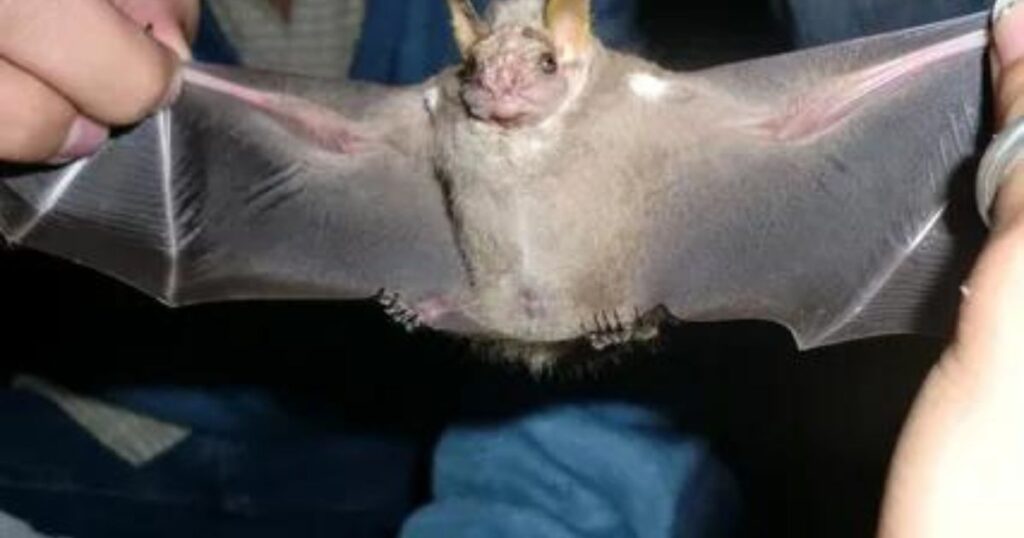
Conserving Bat Populations
In response to the growing threats facing bat populations, a global effort has emerged to promote the conservation and protection of these essential creatures. Bat Appreciation Day plays a crucial role in raising awareness and inspiring action to safeguard the future of bats.
Raising Awareness and Changing Perceptions
One of the primary goals of Bat Appreciation Day is to challenge the negative stereotypes and misconceptions surrounding bats. By educating the public about the valuable ecosystem services that bats provide, event organizers and conservation organizations aim to foster a greater appreciation for these misunderstood animals.
Through educational campaigns, community outreach, and media engagement, Bat Appreciation Day events encourage people to learn about the unique biology, behavior, and ecological importance of bats. This increased understanding can help to dispel the fear and superstition that have often led to the persecution of bats.
Habitat Conservation and Restoration
Protecting and restoring the natural habitats of bats is a crucial component of conservation efforts. This involves advocating for the preservation of existing forests, caves, and other important roosting sites, as well as the creation of new areas that can support thriving bat populations.
Bat Appreciation Day events often include activities and initiatives that encourage community members to participate in habitat restoration projects, such as planting native plants, building bat houses, and maintaining natural areas. These hands-on activities not only benefit bat populations but also foster a sense of stewardship and connection to the local ecosystem.
Scientific Research and Monitoring
Ongoing scientific research and monitoring of bat populations are essential for developing effective conservation strategies. Bat Appreciation Day events often feature presentations and workshops by researchers and scientists, who share their findings and insights on the latest developments in bat ecology and conservation.
These events can also serve as platforms for citizen science initiatives, where members of the public can contribute to data collection and monitoring efforts. By engaging the community in scientific research, Bat Appreciation Day can help to expand the knowledge base and inform future conservation efforts.
Policy and Advocacy
Advocating for policies and legislation that protect bats and their habitats is a critical aspect of conservation work. Bat Appreciation Day events can be used as opportunities to engage with policymakers, lawmakers, and other stakeholders, encouraging them to prioritize bat conservation in their decision-making processes.
This may involve pushing for the establishment of protected areas, the implementation of stricter environmental regulations, or the allocation of funding and resources for bat research and protection programs. By amplifying the voices of bat advocates, Bat Appreciation Day can help to drive meaningful policy changes that safeguard the future of these essential creatures.
Bat Appreciation Day Activities
Bat Appreciation Day events in 2024 will feature a wide range of activities and initiatives designed to engage the public and raise awareness about bats. These may include:
Educational Workshops and Presentations
Experts in bat biology, ecology, and conservation will lead educational workshops and presentations, sharing the latest research and insights on these fascinating animals. Participants will learn about the unique adaptations, behaviors, and ecological importance of bats.
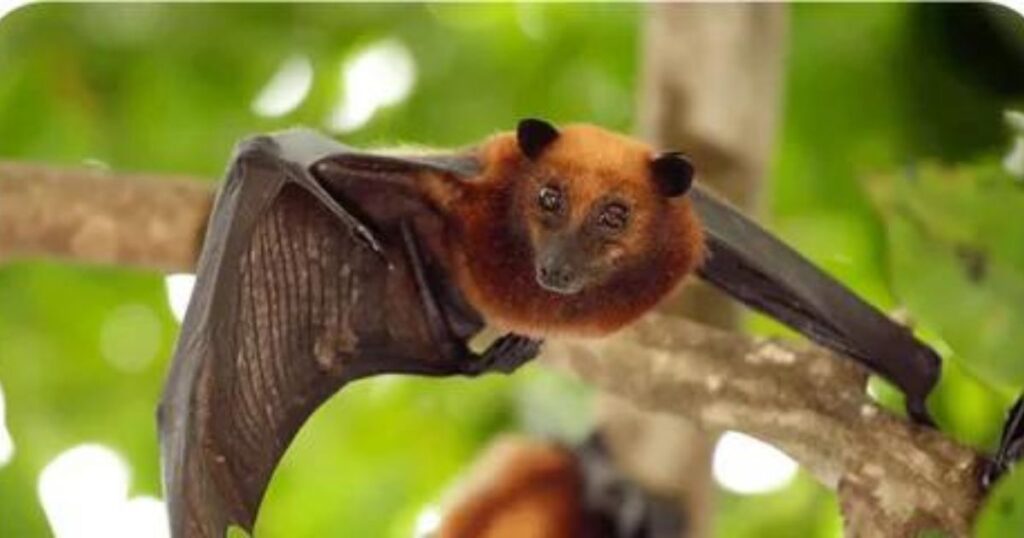
Guided Bat-Watching Tours
Community members will have the opportunity to observe bats in their natural habitats through guided bat-watching tours. These events will allow people to witness the bats’ nightly foraging and roosting activities, fostering a deeper appreciation for their role in the ecosystem.
Citizen Science Projects
Attendees may be invited to participate in citizen science initiatives, such as bat monitoring and acoustic surveys. These hands-on activities will empower the public to contribute to ongoing research and conservation efforts, while also expanding their knowledge about bats.
Habitat Restoration and Conservation
Bat Appreciation Day events will often include opportunities for community members to get involved in habitat restoration and conservation efforts. This may involve building and installing bat houses, planting native plants, or participating in clean-up and restoration projects in important bat habitats.
Fundraising and Advocacy Campaigns
Fundraising and advocacy campaigns will be a key component of Bat Appreciation Day events in 2024. Organizers will partner with local and global conservation organizations to raise funds and resources for research, habitat protection, and educational initiatives.
Bat Appreciation Week
In addition to the annual Bat Appreciation Day celebration, some regions may observe a Bat Appreciation Week to further highlight the importance of bats and the need for their conservation.
During Bat Appreciation Week, a series of events and activities may be organized, focusing on different aspects of bat ecology, conservation, and appreciation. This extended celebration provides more opportunities for the public to engage with and learn about bats.
Bat Appreciation Month
In some countries or regions, the month of August may be designated as Bat Appreciation Month, with a wide range of events and initiatives taking place throughout the entire month.
This expanded celebration allows for more in-depth exploration of bat-related topics, such as the diverse species of bats, their unique adaptations, the threats they face, and the steps being taken to protect them. Bat Appreciation Month events may also include collaborations with schools, community organizations, and local businesses to amplify the message of bat conservation.
International Bat Night
Coinciding with Bat Appreciation Day or Bat Appreciation Week, some regions may also celebrate International Bat Night, a global event that focuses on raising awareness about bats and their importance.
International Bat Night events often feature guided bat-watching tours, educational presentations, and various activities that allow participants to directly observe and learn about bats in their natural habitats. This international celebration helps to foster a sense of global unity in the effort to protect these remarkable creatures.
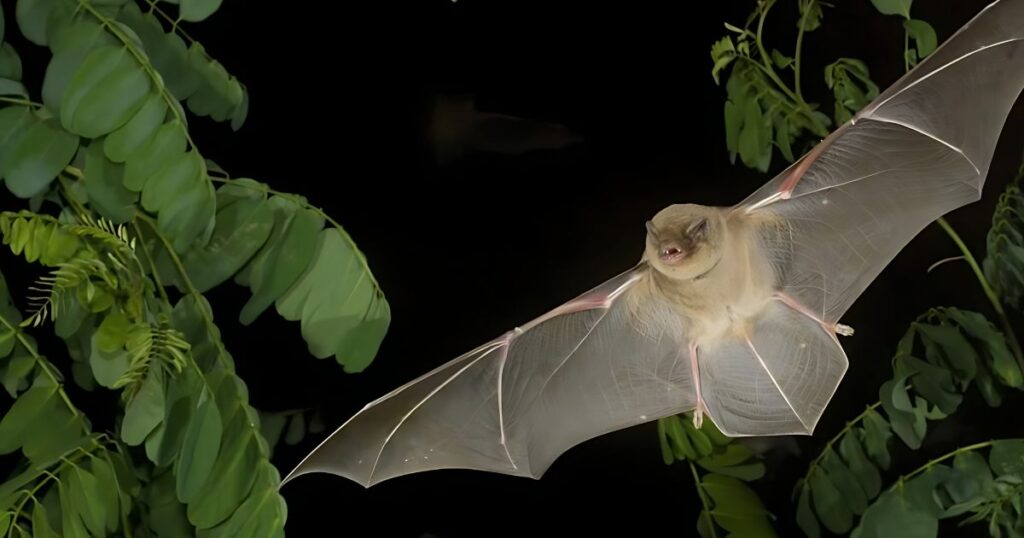
National Bat Day 2023
In 2023, many countries and regions around the world observed National Bat Day on various dates, often close to the traditional Bat Appreciation Day date of August 19th.
These National Bat Day celebrations provided an opportunity for local communities to focus on the specific bat species and conservation challenges relevant to their region. By recognizing the national significance of bats, these events helped to amplify the message of bat conservation and inspire action at the local level.
Bat Appreciation Week 2023
In 2023, many communities celebrated Bat Appreciation Week in the days leading up to or surrounding Bat Appreciation Day on August 19th.
During this week-long celebration, a variety of events and activities were organized to engage the public and raise awareness about bats. Educational workshops, guided bat-watching tours, citizen science projects, and habitat restoration initiatives were just a few of the ways that communities came together to honor and protect these remarkable creatures.
Bat Day at Shea Stadium
In some regions, Bat Appreciation Day celebrations may include unique and innovative events, such as Bat Day at Shea Stadium.
This event, held at a major baseball stadium, would provide an opportunity to educate sports fans and the general public about bats. Activities may include bat-themed exhibits, educational presentations, and even the release of rehabilitated bats into the stadium’s surroundings.
By integrating bat conservation into popular cultural events, Bat Day at Shea Stadium can help to reach broader audiences and foster a greater appreciation for the importance of bats in our ecosystems.
Conclusion
Bat Appreciation Day is a vital celebration that shines a spotlight on the remarkable bats that play such a crucial role in maintaining the delicate balance of our ecosystems. By raising awareness, inspiring action, and fostering collaboration, this annual event can help to secure a future where bats thrive and continue to provide their invaluable ecosystem services.
As we look towards Bat Appreciation Day 2024 and beyond, let us embrace the opportunity to deepen our understanding and appreciation of these remarkable creatures. Through education, conservation, and advocacy, we can work together to ensure that bats remain an integral part of our natural world for generations to come.
FAQs:
1: What is International Bat Appreciation Day?
International Bat Appreciation Day is an annual event on August 19th to raise awareness about the importance of bats and promote their conservation.
2: What month is bat month?
In some regions, the entire month of August is designated as “Bat Appreciation Month” to highlight the crucial role of bats.
3: What does bat day mean?
Bat day, or Bat Appreciation Day, is a celebration to educate the public about bats and inspire action to protect them.
4: Why should we appreciate bats?
Bats play vital roles as pollinators, seed dispersers, and natural pest controllers, providing essential ecosystem services.
5: What are 5 facts about bats?
1: Bats are the only flying mammals
2. Bats are highly diverse
3. Bats are important pollinators
4. Bats aid in seed dispersal
5. Bats are efficient natural pest controllers.
6: Why do we love bats?
We love bats for their fascinating biology, crucial ecological roles, and often-misunderstood nature.
7: How do bats show love?
Bats exhibit behaviors like grooming, cuddling, vocal communication, parental care, and cooperative behavior to demonstrate affection.
8: What do bats teach us?
Bats teach us lessons about adaptability, interconnectedness, resilience, perspective, and coexistence.
9: What do bats like?
Bats prefer safe roosts, abundant food sources, dark environments, quiet habitats, and access to water.
9: Are bats intelligent?
Yes, bats possess a range of cognitive abilities, including echolocation, memory, social intelligence, adaptability, and even tool use.
10: What do bats do every day?
Bats engage in daily activities such as roosting, foraging, echolocation, socializing, parental care, grooming, and drinking.
11: What is the bats Behaviour?
Bats exhibit diverse behaviors, including roosting, foraging, migration, reproduction, social interactions, and defensive mechanisms.

